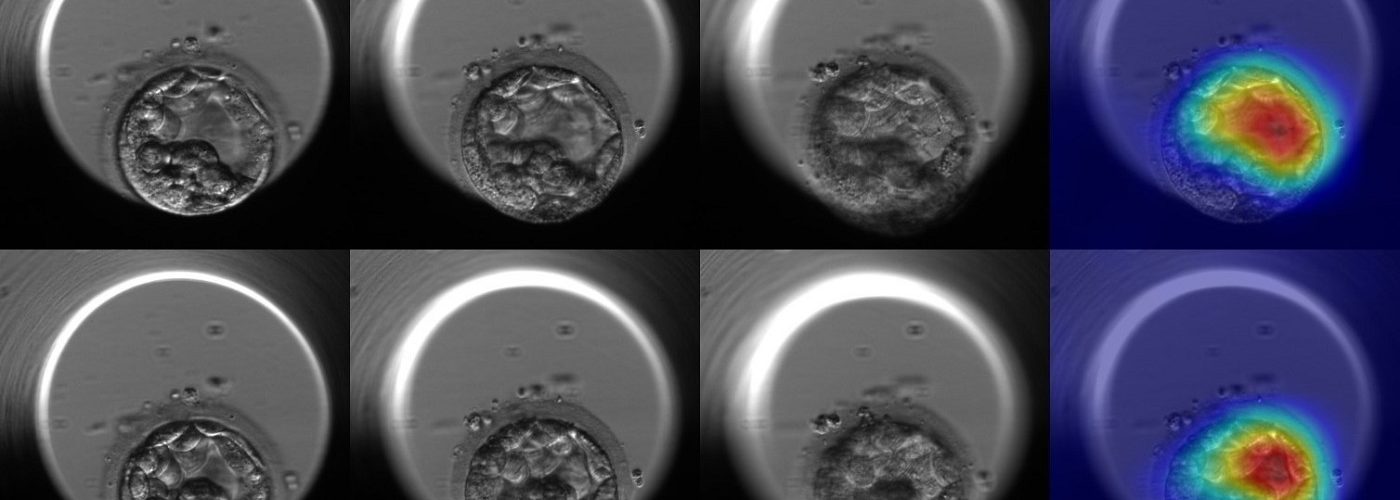
A novel artificial intelligence (AI) approach to measure cell division activity associated with chromosomal status, is being presented these days at the 37th ESHRE. This year for the second time, due to the health situation, the ESHRE congress is taking place on line. The study presented by IVI is the latest work on applying Artificial Intelligence to embryo selection, Computer vision can distinguish between euploid and aneuploid embryos.
IVI has performed the most extensive studies on Artificial Intelligence’s application to embryo selection, with the broadest combined case study in scientific history, analyzing 25,000 embryos and 4,000 patients. Thanks to this study, IVI is pioneer in the embryology sector, providing its clinics with diverse techniques that allow us to offer universal, standardized and automated selection of embryos. In addition, the latest findings were published in the US journal Fertility and Sterility and in European Reproductive Biology OL.
Applying Artificial Intelligence to embryo selection
The development and introduction of Artificial Intelligence (AI) technology in recent years has revealed the potential to address the inefficiencies in several steps of assisted reproduction. This includes improvements in some in-vitro fertilization (IVF) lab procedures and, more specifically, in the selection of embryos.
“We have applied data-based solutions in embryology laboratories to assess the potential for embryo implantation. This allows us to improve the efficiency of one of the most important processes in assisted reproduction: embryo culture and selection, with an accuracy of 75 % in the selection of chromosomally normal embryos. However, it was not possible with the manual assessment of the previous process to identify these embryos, regardless of the experience of the embryologist,” said Dr. Marcos Meseguer, embryologist and scientific research supervisor of the Embryology Unit of IVI Valencia.
Stanford University recently recognized Dr. Meseguer as one of the top researchers in the world, along with professors José Remohí and Antonio Pellicer, and Dr. Juan Antonio García Velasco, all of whom are IVI professionals.
How can AI improve IVF treatments?
AI is a broad term that encompasses machine learning and deep learning. It refers to any program capable of solving problems and performing tasks as human beings normally do.
“This system automatically classifies embryos using directed learning methods based on the experience of expert embryologists. It has the ability to detect and evaluate all of the steps in the embryo’s development, while also classifying its morphology. Automated, as opposed to manual, embryo selection is more accurate, so the likelihood of a full-term pregnancy is directly related to the percentage score, and thus the patient has a greater probability of success,” explains Dr. Meseguer.
Therefore, Artificial Intelligence offers many improvements in fertility treatments, not only concerning embryo selection:
- A broader and earlier identification of potential patients. This is due to new indicators of infertility and correlations in behavior patterns, by using big data analysis.
- A better management of patient expectations with analysis of predictions for the success of IVF treatments, considering live births.
- An increasement of treatment success rates, thanks to a personalized and individualized protocol.
- Support in making clinical decisions throughout all steps of the laboratory process, using algorithms and computer vision to identify most viable gametes and embryos.
- Determination of the reception phase of the endometrium using intelligent algorithms and biomarkers that help determine the likelihood of an optimal transfer and achievement of pregnancy.
A non-invasive technique
For the first time, an AI-based system can accurately analyze the initial stages of embryonic development and quantify the duration of cell cycles, while determining the diameter of the cells that form the blastocyst, thus generating an algorithm capable of distinguishing between a chromosomally normal and abnormal embryo with an accuracy of 75%.
The purpose of IVI’s study was to analyze a chromosomally euploid embryo without the need for invasive techniques. That is, to extract several cells (from 5 to 10) from the blastocyst necessary to analyze them chromosomally and learn the content of the blastocyst.
More than 2,500 embryos genetically analyzed at IVI Valencia – the largest scientific case study in the world – has allowed us to demonstrate that, depending on their chromosomal content, the embryos behave differently in their pattern of development, and this can be analyzed automatically with imaging.
Thus, chromosomally normal (euploid) embryos begin their development as blastocysts slightly earlier than aneuploid embryos. This longer period for aneuploid embryos to grow until they reach the blastocyst phase is explained by their higher level of cellular activity.
AI increases the pregnancy rates
The possibility of chromosomally selecting and categorizing the best embryos results in an increase in gestation and pregnancy rates and reduces the likelihood of chromosomal anomalies, producing an objective and reliable prediction using a fast and economical technique.
This is a revolution in assisted reproduction because it allows us to avoid invasive techniques that may affect the viability of the embryo in some way, matching the current results of the non-invasive PGT-A without the cost and the harm to the embryo that the latter entail. Furthermore, it would involve the automation of a process that is currently performed manually and on a small scale.





Comments are closed here.